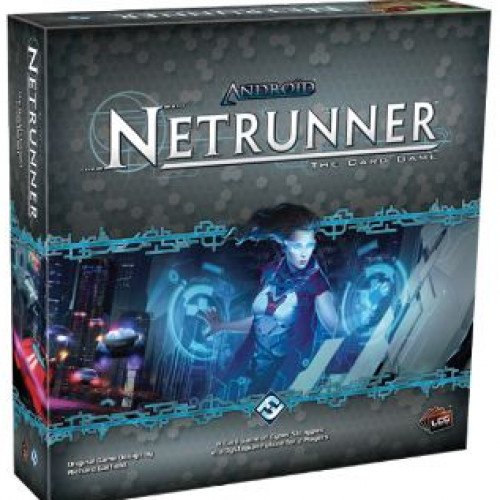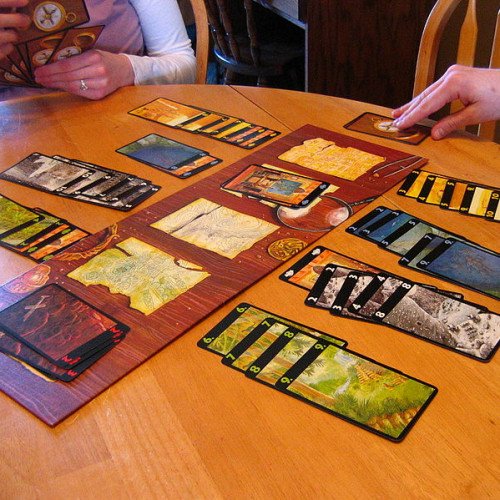ANDROID: NETRUNNER VS LOST CITIES

ANDROID: NETRUNNER
Android: Netrunner is a Living Card Game (LCG) produced by Fantasy Flight Games. It is a two-player game set in the dystopian future of the Android universe. Each game is played as a battle between a megacorporation and a hacker ("runner") in a duel to take control of data. It is based on Richard Garfield's Netrunner collectible card game, produced by Wizards of the Coast in 1996. In 2017, a second edition of the core set was announced which replaced some of the original cards with cards from the first two expansion cycles. In 2018, the game was discontinued due to the license with Wizards of the Coast ending. Fantasy Flight stated that Netrunner products will no longer be sold by them as of October 22, 2018, and Reign and Reverie was the last expansion. Like the original, the game is asymmetric and involves two players, one playing a hacker ("the Runner") and the other playing a corporation ("the Corp"). The Runner wins by stealing seven or more points worth of agenda cards or if the Corp can't draw a card when required (due to an empty deck). The Corp wins by scoring agenda cards worth a total of seven or more points or if the Runner is forced to discard more cards than they have in their hand.
Statistics for this Xoptio

LOST CITIES
Lost Cities is a 60-card card game, designed in 1999 by game designer Reiner Knizia and published by several publishers. The objective of the game is to mount profitable expeditions to one or more of the five lost cities (the Himalayas, the Brazilian Rain Forest, the Desert Sands, the Ancient Volcanos and Neptune's Realm). The game was originally intended as a 2-player game, but rule variants have been contributed by fans to allow 1 or 2 further players, causing Reiner Knizia himself to later provide semi-official 4-player rules. Lost Cities is a fast-moving game, with players playing or discarding, and then replacing, a single card each turn. Cards represent progress on one of the five color-coded expeditions. Players must decide, during the course of the game, how many of these expeditions to actually embark upon. Card-play rules are quite straightforward, but because players can only move forward on an expedition (by playing cards which are higher-numbered than those already played), making the right choice in a given game situation can be quite difficult. An expedition that has been started will earn points according to how much progress has been made when the game ends, and after three rounds, the player with the highest total score wins the game. Each expedition that is started but not thoroughly charted incurs a negative point penalty (investment costs). Interaction between players is indirect, in that one cannot directly impact another player's expeditions. However, since players can draw from the common discard piles, they are free to make use of opposing discards. Additionally, since the available cards for a given expedition are finite, progress made by an opponent in a given color can lead to difficulty making progress in that same color. The game's board, while designed to supplement the theme, is optional and consists only of simple marked areas where players place discards. If Lost Cities had four expeditions instead of five, it could be played with a standard deck of playing cards. When doing so, the face cards would represent investment cards, with numbered cards two through ten serving as the expedition progress cards.